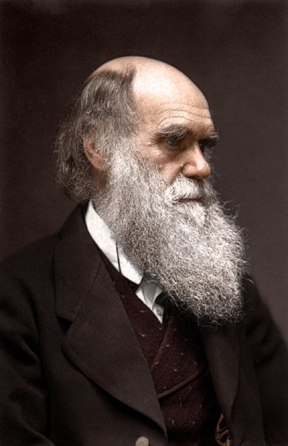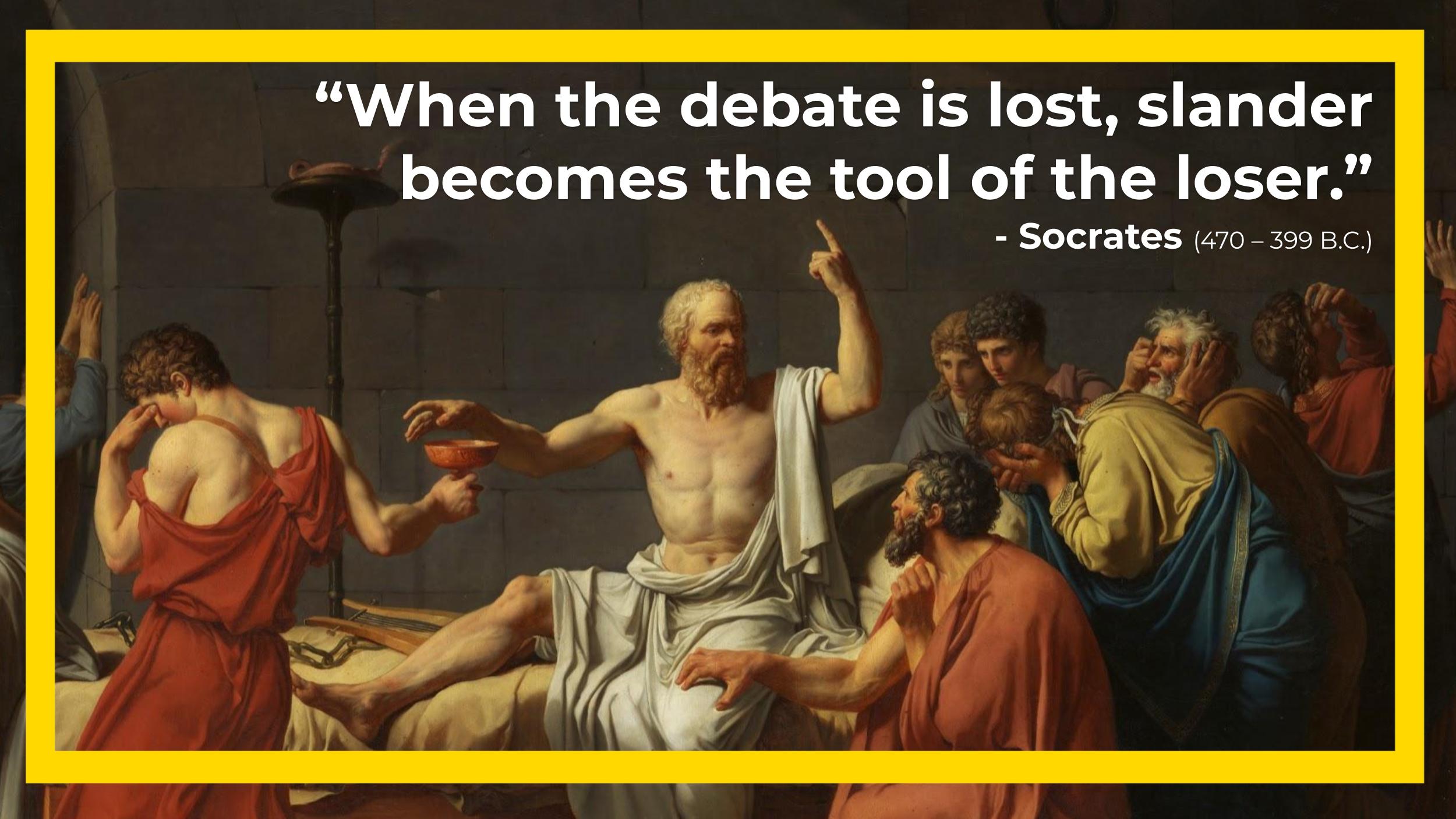 I met the woman of my dreams when I was fourteen years old. We dated on and off, but after what felt like the longest seven years of my life; we finally were married in 2001. Sometimes our life together seems like a fairy-tale and other times it has been beyond tough.
I met the woman of my dreams when I was fourteen years old. We dated on and off, but after what felt like the longest seven years of my life; we finally were married in 2001. Sometimes our life together seems like a fairy-tale and other times it has been beyond tough.
We have stuck to the commitment we made to each other in front of God and our Christian community… and I am so thankful we have continued to fall back in love over and over. Time has flown by and now our kids are older than we were when we met.
This life of ours is good, but is this the only way a life of love can be?
I am married to a woman, but I have friends who identify as gay. In fact, I have friends who self-identify as many things other than straight. The LGBTQIA community is active, is growing, and is filled with people that I deeply care about and spend time with on a weekly basis.
After years of experiencing the tension that is within Christian culture in regard to sexual expression, I felt compelled to write this article.
Before we dive in, we have to ask if my LGBTQIA friends and I agree on everything?
No, but we get along and we spend time together. I know they feel love from me, and I feel love from them.
Are my LGBTQIA friends Christians?
Some say no, and some say yes. The same is true for my straight friends. Some say they are Christians and some say they are not.
Regardless of what any of my friends believe or how they identify themselves, I am there for them and I try to invest in them as any good friend would.
What about truth?
We live in a marketplace of ideas and anyone can believe whatever they want, but not everything is true.
Some people say that there is no universal truth, and that we all can decide individually what is true. Yet, is that true? Would that be an unchanging truth that is always true for everyone?
Saying truth is subjective, is essentially saying that those who believe in objective/absolute truth, are inherently wrong.
Claiming all truth to be subjective is an objective statement of truth, and is therefore self-refuting.
In light of seeing how illogical it is to objectively claim truth to be subjective, truth seems to logically be objective. Fortunately, claiming all truth to be objective is not self-refuting. In fact, the idea of objective truth is reasonable, and is able to be validated.
Do not confuse subjective preferences like your favorite flavor of ice cream as being evidence for truth being non-objective. There is a Pop-Culture mistake that has become pervasive and the source of much confusion. It goes along the lines of something like, what’s true for you is true, but my truth is __________ (fill in the blank). Yes, our preferences are true for us individually, but the truth of reality outside of ourselves is absolute. For example, evolution is either true or false regardless of our preferences.

PREFERENCE ≠ TRUTH

Another reason why we intuitively know that truth is objective has to do with discussion. It is illogical for someone to disagree with another person if truth is subjective. What would be the basis for the disagreement? Why argue about anything if all truth is personally subjective?
The only basis for a reasonable/logical disagreement is if two people each believe their own conflicting ideas are objectively true.
I love my friends and family who disagree with me, but I do believe that what I hold to be true is objectively & universally true for all people.
Yikes, did I just say that?
Yes, I did just say that, and it is not a popular thing to say. In fact, when I share the idea that truth is objective, I generally get one of four responses.
- People are offended personally.
- They start calling me names.
- They “Ghost” me as a friend.
- I am engaged in reasonable discourse.
Although reasonable discourse is the most productive, name calling tends to be more common. Could it be that name calling is the only tool someone can use if they have no reasonable and/or logical understanding of truth?

Our feelings and preferences are so personal, so we react personally.
It is almost impossible to disconnect our feelings and preferences from our identity. We believe that what we like and how we feel is who we are. This is the conundrum that takes place when an objective truth claim is made. If the claim is in direct opposition to our preferences and feelings, we feel personally attacked. With that said, most folks who believe they are being personally attacked will respond with a personal attack. Which shuts down conversation and destroys friendship.
At the Deep Questions Club, we have a motto; “Friends first, agreement second.” Yet, unfortunately we have had members vilify and ghost others over a non-personal broad truth claim.
There is good news!
Many of the friends in the club that have disagreed have chosen to keep an open and reasonable discourse. 🙂
They have refrained from plugging their ears and have not yelled foul descriptors of how they see others’ character. In fact, those who have disagreed and have chosen to remain friendly, have often times changed each other’s minds. Myself included.
Yes, I have found that some of the things I thought were true, were in fact false. Through friendly, reasonable discourse I have come to change my mind on many things and have come to understand the truth. Good friends remain good friends, regardless of disagreements. For example, my wife and I still disagree on certain things, and we’ve been married since 2001!
Choosing to follow Jesus Christ is objectively the most truthful way to live.
- Jesus intentionally created us.
- Jesus lived among us.
- Jesus taught us how to live on Earth.
- Jesus taught us how our souls can live with Him eternally.
- Jesus proved himself by dying in our place & rising from the dead!
We are soul and body, created by Jesus. So, in order to live maximally in both areas of soul and body, we must study Christ and mature in His likeness.
How do we know Jesus is who He said He is?
There are so many ideas, religions, philosophies, and scientific theories, but Jesus Christ is the only true answer to the deep questions we all have. Every answer outside of Jesus is full of contradictions, inconsistencies, and cannot meet the criteria of logic, reason, and science.
WOW! That was a big claim, so let’s dive in and explore it.
Why is Christianity true?
We know that Jesus is the only way, because the Bible tells us that he claimed to be the only way. (John 14:6) Yet, two questions arise:
- What about all the other religions? (watch this)
- How do we know the Bible can be trusted?
Perhaps, you may claim the Bible is nothing more than a fanciful book of fairy-tales. Perhaps, you don’t care about the teachings of Jesus in regard to the afterlife.
DO YOU VALUE EVIDENCE?

OR, DO YOU PREFER BLINDFOLDING YOURSELF TO THE TRUTH?
IF YOU OPEN YOUR EYES, YOU WILL SEE AN OVERWHELMING AMOUNT OF EVIDENCE THAT SUPPORTS THE AUTHENTICITY AND TRUTHFULNESS OF THE BIBLE.
- Atheist Archaeologists use the Bible to discover new dig sites. Tens of thousands of artifacts have been found authenticating names, dates, and places mentioned in Scripture.
- The accounts of the Disciples and their eye-witness testimony is so embarrassing that it points toward the truth of the Bible. There seems to be no attempt to create myth or legend.
- Non-Christian historians wrote about Jesus and his followers which verifies the details within the Biblical account.
- Over three-hundred ancient prophesies have been fulfilled by the historical person known as Jesus of Nazareth.
- Thousands of manuscripts and the Dead Sea Scrolls validate the original, unchanged text of the Bible.

Yes, we can trust the authenticity of the Bible! In fact, I have created a five part video series that dives deeper into the above five points of evidence. CLICK HERE TO WATCH FOR FREE
Choosing to follow Jesus Christ is, objectively, the most truthful way to live.
The deep questions of life can only be coherently answered through a Biblical worldview.
The Bible is authentic and unable to be refuted or logically denied.

Now that we have a better understanding of the truth of Christ, let’s remember what he has done and let it soak in.
- Jesus intentionally created us.
- Jesus lived among us.
- Jesus taught us how to live on Earth.
- Jesus taught us how our souls can live with Him eternally.
- Jesus proved himself by dying in our place & rising from the dead!
We can trust what the Bible teaches. In order to live the most Christ centered life, we must study the Word of God and mature in the likeness of Jesus. All science, reason, logic, philosophy, and evidence points to Christianity being true.
So, what does it mean to
be a “straight” Christian?
I don’t know. I am not a “straight” Christian.
- Yes, I have chosen to be a follower of Christ.
- Yes, I have chosen to marry one person of the opposite sex.
Perhaps, someone might call me a “straight” Christian, but that is not how I self-identify.
According to Scripture, we become new creations. We no longer place labels or identify from a worldly point of view. We are no longer identified by our standards, status, ethnicity, gender, sexuality, or anything other than Christ. A true Christian is not self-identified, but Christ-identified by our new adoption into the Family of God.
2 Corinthians 5:16-17 New International Version (NIV)
So from now on we regard no one from a worldly point of view. Though we once regarded Christ in this way, we do so no longer. Therefore, if anyone is in Christ, the new creation has come: The old has gone, the new is here!Galatians 3:28 New International Version (NIV)
There is neither Jew nor Gentile, neither slave nor free, nor is there male and female, for you are all one in Christ Jesus.Romans 8:15-16 New Living Translation (NLT)
So you have not received a spirit that makes you fearful slaves. Instead, you received God’s Spirit when he adopted you as his own children. Now we call him, “Abba, Father.” For his Spirit joins with our spirit to affirm that we are God’s children.
According to Scripture, there is no such thing as a “straight” Christian.
According to the Word, there is only one identity for Christians and that is in Jesus Christ. When we identify by worldly ideas, we are no longer following Christ in that area of our lives. We must constantly be comparing our ideas of what we think is good with what the Bible says is good. Our wants, feelings, and preferences cause us to read, interpret, and ignore the Word in order to try and validate what we hope & desire to be true. This is not the character of a Christ follower and it will ultimately lead us away from Jesus.
CHRIST FOLLOWERS IDENTIFY IN CHRIST,
NOT IN OUR FEELINGS & PREFERENCES
So, what does this have to do with the tension that is within Christian culture in regard to sexual expression?
Please continue on, I know this is tough stuff. I do not like what you are about to read, because the below statements go against my ego. Regardless of all the evidence pointing to Christ, I don’t naturally want to follow Christ or follow anyone for that matter. I want to be my own boss in everything, including what I do with my time, skills, money, and sexual expression.
In spite of my feelings and preferences:
- I am a follower of Christ because the Bible is true, all reason, logic, and science affirm the authenticity of the Bible, I have witnessed miracles, and I have had deeply spiritual experiences with the person of Jesus.
- I have chosen to marry one person of the opposite sex because it is the most truthful & Biblical way to express sexuality.
These two claims are not what I would naturally say. Part of me is constantly at war with another part of me and choosing to follow Christ is a battle. The words of Paul in Romans 7 explain it best.
My LGBTQIA friends who claim to be Christian don’t take issue with the first point. Yet, the second point is usually met with objections.
OBJECTION #1: We cannot choose to be gay or straight.
Many of my friends have quickly discounted the idea of having chosen to be gay. In fact, many have said they cannot choose which gender they are attracted to because they were born gay.
This claim may or may no be true, but let’s take a moment to explore it through genetics and psychology.
Genetics – The human body is amazingly complex, and many of our traits are expressions of the genes encoded within our DNA. Some folks have proposed that people are born gay because of their genetic programming. The claim is that, no matter what, they are going to be gay because they have a “Gay Gene” in their DNA. Yet, the Human Genome Project has mapped the entire sequence of human DNA of which, the proposed “Gay Gene” has yet to be found.
Ironically, even if a “Gay Gene” did exist; we would have to assume their is also a “Straight Gene.” How would the “Gay Gene” be passed down? Given that offspring are the result of sexual reproduction, how would the proposed “Gay Gene” continue to exist? An overwhelming majority of the LGBTQIA Community have straight parents, of whom would logically not be carrying the proposed “Gay Gene,” but would be carrying the proposed “Straight Gene.”
Another scenario in support of being born gay due to genetics could be mutation. In some instances, a new and random re-arrangement of a gene occurs. In the process of replication, one or more genes can be transposed incorrectly which rewrites the genetic sequence. These genetic errors express themselves much differently than their error free counterparts.
Perhaps, if geneticists were to someday find a “Gay Gene,” it could be explained to have arisen due to a mutation. Yet, the argument of a “Gay Gene” arising due to a genetic error is not in favor of those using it. Beside the fact that geneticists have only identified deleterious mutations, how would a mutated “Gay Gene” be passed down?
The idea of specific genes determining sexual orientation seems to be scientifically invalid.
Psychology – We understand the sexual differences between men and women, and studies have affirmed these differences. No surprise, most men have higher sex drives than women. Therefore, heterosexual monogamy is in direct conflict with the fact that men desire sex more often than women. So, why are the majority of men choosing to be in monogamous relationships with women?
If there were no negative effects of being a lifelong playboy, monogamy rates would be presumably lower. I think, like me, other men choose to deny their sexual desire of playing the field in order to reap the benefits of heterosexual monogamy… but also to avoid the negative effects of broken hearts and acquiring disease by playing the field.
Yes, my faith in Christ is a major reason why I chose to walk away from my sexual desire of being a playboy, but it is not the only reason. I chose to express my sexuality as a monogamous, heterosexual man because of the benefits.
- I never worry about STDs
- I never worry about unwanted pregnancy.
- It is wonderful to grow old with my wife who knows me deeply.
- There are many beautiful things about my wife’s woman sensibilities that complement my male behavior.
- It is beautiful to look at my children and see genetic echo-ings of not only my wife and I, but the traits of grand-parents and great-grand-parents.
I could have chosen to chase desires, but I chose what is most beneficial. Was it tough to give up my sexual desires and commit to something other? Yes, but the benefits of what I have chosen with my sexuality outweigh any other possible sexual expression.
My sexual expression is a choice, and this seems to be objectively true for all people.
Yes, it is a bold statement for me to say that we choose our own sexual expression.
Of course, this statement is false for victims of rape and sexual abuse in the moment. Yet, later in life, the victims of rape and sexual abuse will make conscious decisions on what their sexual expressions will be. Or perhaps, like others, they may choose to abstain from sexual expression altogether.
Across the centuries, countless men and women of deep conviction to something higher than themselves have chosen to be celibate.
The desire to engage in sexual practice in order to procreate is a biological factor that is empirically supported to be “born with,” aka acquired in utero. Yet, many people have chosen a non-sexual lifestyle that is non-reflective of their biological, sexual desires. We know these people are not anomalies who lack sexual desire. People who choose celibacy have real sexual desires and we know this to be true for inconsistencies and sexual scandals arise frequently. It is quite clear that those who are celibate have chosen a lifestyle that is non-reflective of their sexual feelings, preferences, and desires.
Our sexual feelings, preferences, and desires may be oriented toward gay, straight, bisexual, poly-amorous, or celibate lives. However, it is plain to see that we all have the ability to choose how we express our own sexuality.
OBJECTION #2: Jesus never talked about homosexuality.
True, Jesus never talked about homosexuality and never gave a reprimand to those who engaged in same sex expression. So, what does this mean for the Church today? What does this mean for Christians that might self-identify as LGBTQIA?
Jesus taught his disciples and the multitudes on many topics, but there were many other topics he never covered. So, how do we Christians engage the things Jesus never addressed?
If Jesus never specifically addressed a topic, the last thing we should do as Christians is to live out that issue the way we see fit.
Yes, Jesus is silent on the modern understanding of LGBTQIA topics, but he was very clear on sexual expression. Jesus acknowledges that sex is powerful and knows that it has a very strong effect on our decision making. In fact, he says that if someone can live without sex, they should. He calls his followers to a life that ignores sexual expression and to live as if they don’t even have genitalia.
Matthew 19:11-12 New International Version (NIV)
“Not everyone can accept this word, but only those to whom it has been given. For there are eunuchs who were born that way, and there are eunuchs who have been made eunuchs by others—and there are those who choose to live like eunuchs for the sake of the kingdom of heaven. The one who can accept this should accept it.”
Essentially, Jesus is saying that if you are able to deny sexual expression for the sake of the Kingdom of God, a Christ follower should choose to do so. Wow!
But, what if I can’t deny my desire for sex?
That’s OK. Jesus is clear in saying that being celibate is not for everyone. Yet, he does not give license to unlimited indulgence of sexual expression to those who are not able to be celibate.
Jesus spoke of sex in a Biblical way when he quoted Genesis. He was affirming that two people are joined together, becoming one flesh, and that they should never separate.
Matthew 19:4-6 New International Version (NIV)
“Haven’t you read,” he replied, “that at the beginning the Creator ‘made them male and female,’ and said, ‘For this reason a man will leave his father and mother and be united to his wife, and the two will become one flesh’? So they are no longer two, but one flesh. Therefore what God has joined together, let no one separate.”
Sex was designed by Jesus and given to us for unity and reproduction with only one other person in marriage. Many parts of the Bible affirm Jesus’s teaching on sex and marriage, like the book of Malachi.
Malachi 2:15-16 New International Version (NIV)
Has not the one God made you? You belong to him in body and spirit. And what does the one God seek? Godly offspring. So be on your guard, and do not be unfaithful to the wife of your youth.“The man who hates and divorces his wife,” says the Lord, the God of Israel, “does violence to the one he should protect,” says the Lord Almighty.
So be on your guard, and do not be unfaithful.
CONCLUSION
I love my friends I don’t agree with. I enjoy our conversations and am glad that we continue to hangout in spite of our differences. There are many things we will never agree upon, but I hope we can always be friends.
Sexual expression is very important to all of us, and it is very important to Jesus as well.
Jesus came to save everyone, because he loves everyone. Yet, he is clear in that his way is the only way, not our way.
As followers of Christ, we are called to be a reflection of Christ. We must choose his authority as the standard for our lives regardless of what we want, desire, or prefer.
According to Jesus, we must deny our personal sexual feelings and preferences. We must be obedient and conform our sexual expression to his standard.
Of course, if you are not a follower of Christ and you choose your own way of expressing yourself sexually, I hope you don’t feel animosity from me. I hope we can still be friends, and I hope someday you will follow Jesus.
If you self-identify as an LGBTQIA Christian or you are a playboy/playgirl Christian, I also hope you feel no animosity from me… and I hope we can still be friends. It’s Christ way for Christ followers.
With that said, I am far from perfect and my desires, wants, and preferences constantly supersede my obedience to Jesus. I am a broken person and am by no means free from hypocrisy. I need to mature and grow in the likeness of Christ just like anyone else. So, please correct me if I twist the truth or try to celebrate/normalize my un-Jesus-like character.
Will you still be my friend?
Can we still have reasonable discourse even if we don’t agree?
I hope so.
Much love & Godspeed,
William
